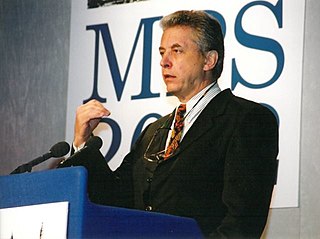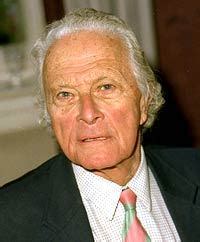A Quote by Leon Louw
Climate change hype has grave real world consequences. It gets rich countries to adopt silly policies and to impose devastating eco-imperialism on poor countries. The world's rich millions can afford environmental extremism; its poor billions can't. Climate change pseudo-science about human causality has been exposed repeatedly. What's less appreciated is that there aren't more natural disasters in need of an explanation.
Quote Topics
About
Adopt
Afford
Appreciated
Been
Billions
Causality
Change
Climate
Climate Change
Consequences
Countries
Devastating
Disasters
Eco
Environmental
Explanation
Exposed
Extremism
Gets
Grave
Human
Hype
Imperialism
Impose
Less
Millions
More
Natural
Natural Disaster
Natural Disasters
Need
Policies
Poor
Poor Countries
Pseudo
Real
Real World
Repeatedly
Rich
Rich Countries
Science
Silly
World
Related Quotes
Climate change is...a gross injustice-poor people in developing countries bear over 90% of the burden-through death, disease, destitution and financial loss-yet are least responsible for creating the problem. Despite this, funding from rich countries to help the poor and vulnerable adapt to climate change is not even 1 percent of what is needed.
If the level and amount of consumption and waste of the western rich countries ever reaches the poor countries, it will mean the end of humanity. The big world corporations are busy doing it...The production, selling, consumption, accumulation, wastes' and advertisement explosions in the western rich countries and the continued population explosion in the poor countries will turn into major catastrophes.
The great question for our time is, how to make sure that the continuing scientific revolution brings benefits to everybody rather than widening the gap between rich and poor. To lift up poor countries, and poor people in rich countries, from poverty, to give them a chance of a decent life, technology is not enough. Technology must be guided and driven by ethics if it is to do more than provide new toys for the rich.
The U.N. has brought peace and order to many places around the world. However, terrorism, violent extremism, violations of human rights, natural disasters caused by climate change - they all threaten the lives of people today. Add migration, insufficient health care, lack of education, and the picture gets even bleaker.
Both rich and poor nations have a common stake in policies that put the globe on a sustainable development path. The conflict is less between poor and rich countries than between the broad interests of people and the narrow interests of extractive industries. We need to find our way towards some kind of global regime that reduces emissions of the greenhouse gases, but well-off nations need to transfer the technology to make this possible, rather than viewing this shift as one more opportunity for private industry to profit.
Now it is the least developed world who are not responsible for this climate change phenomenon that bore the brunt of climate change consequences so it is morally and politically correct that the developed world who made this climate change be responsible by providing financial support and technological support to these people.
The fact is that the rich are getting richer while the poor are being left behind. Women remain under-represented in boardrooms and under-engaged in the global workforce. Environmental change is leaving the poorest countries vulnerable. Voters are becoming more and more politically polarised and partisan.


































